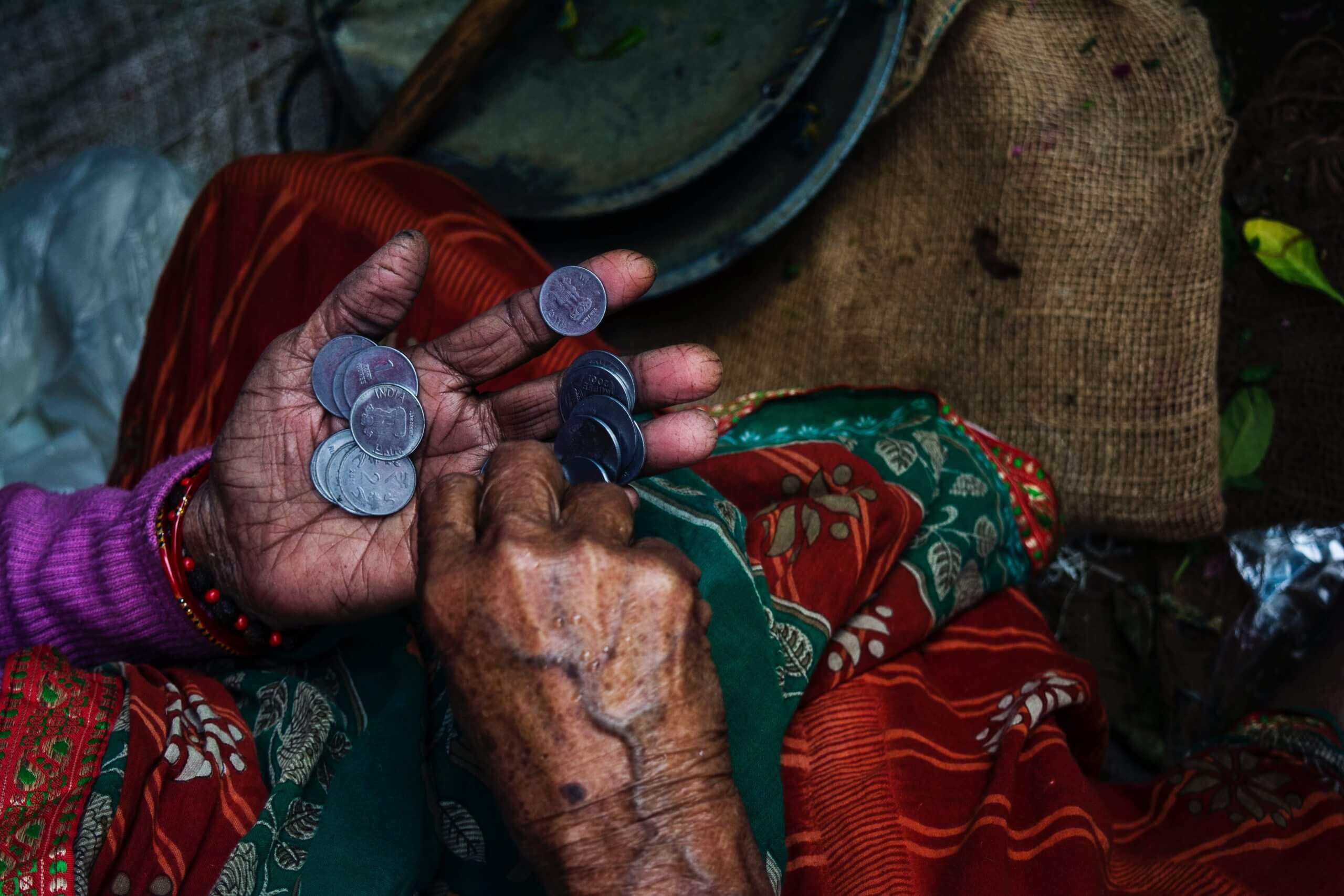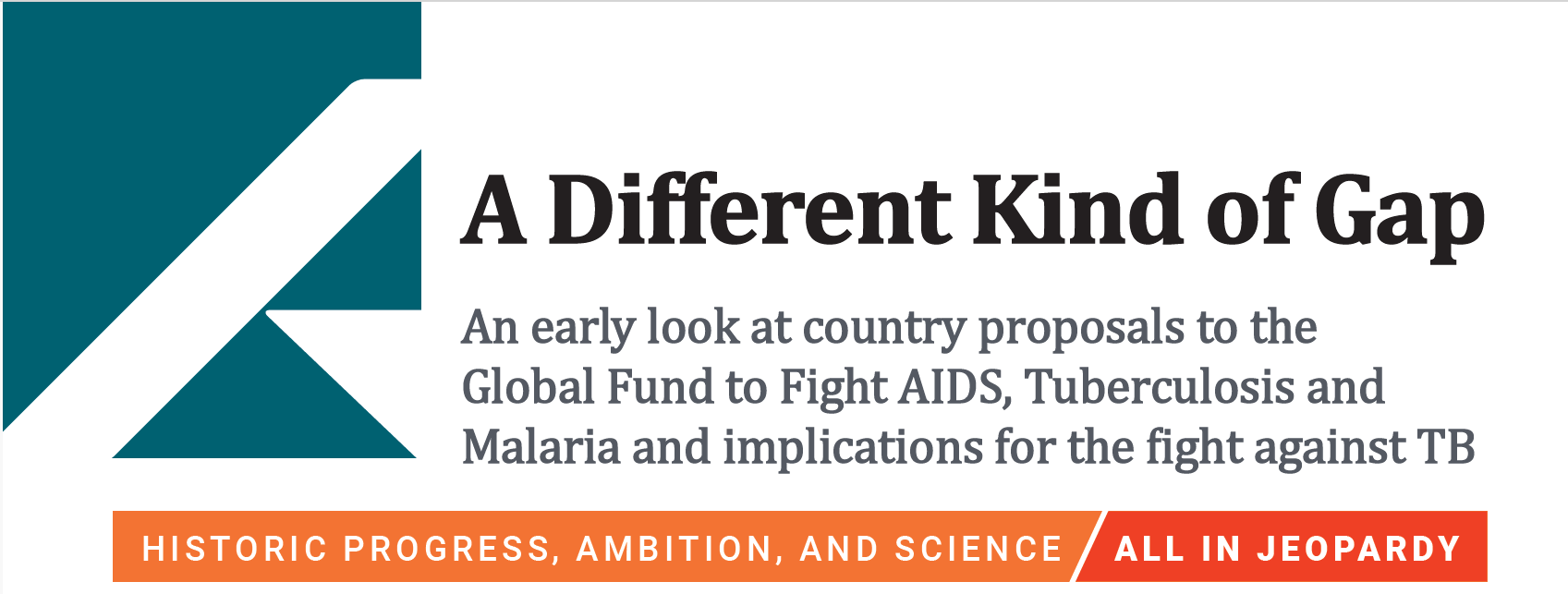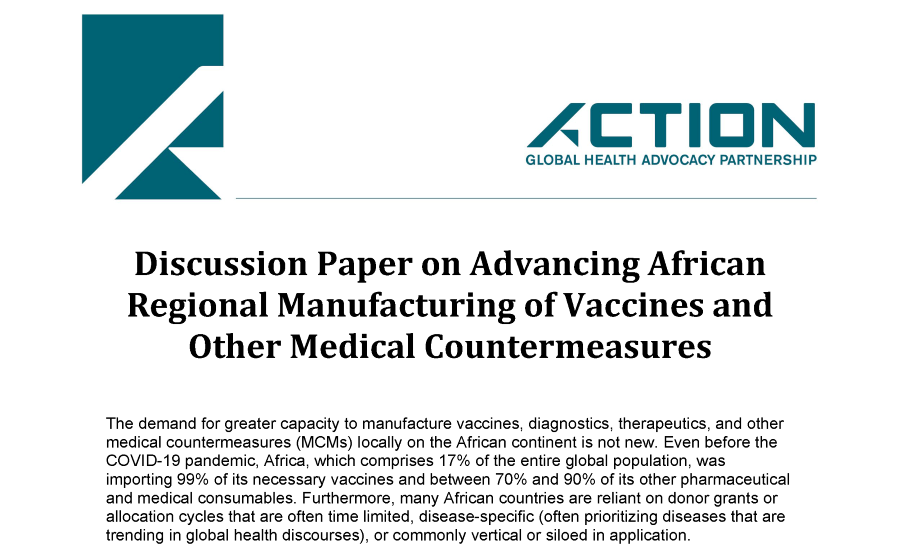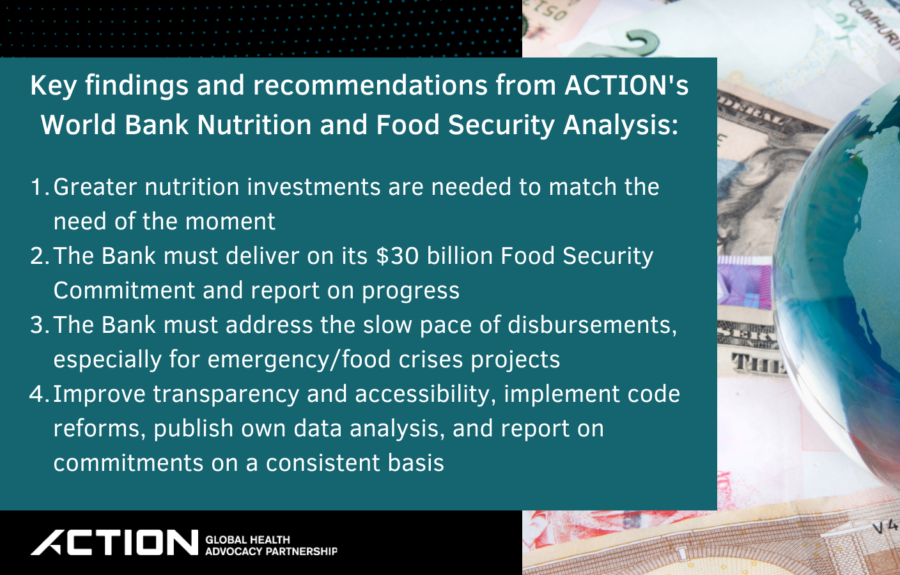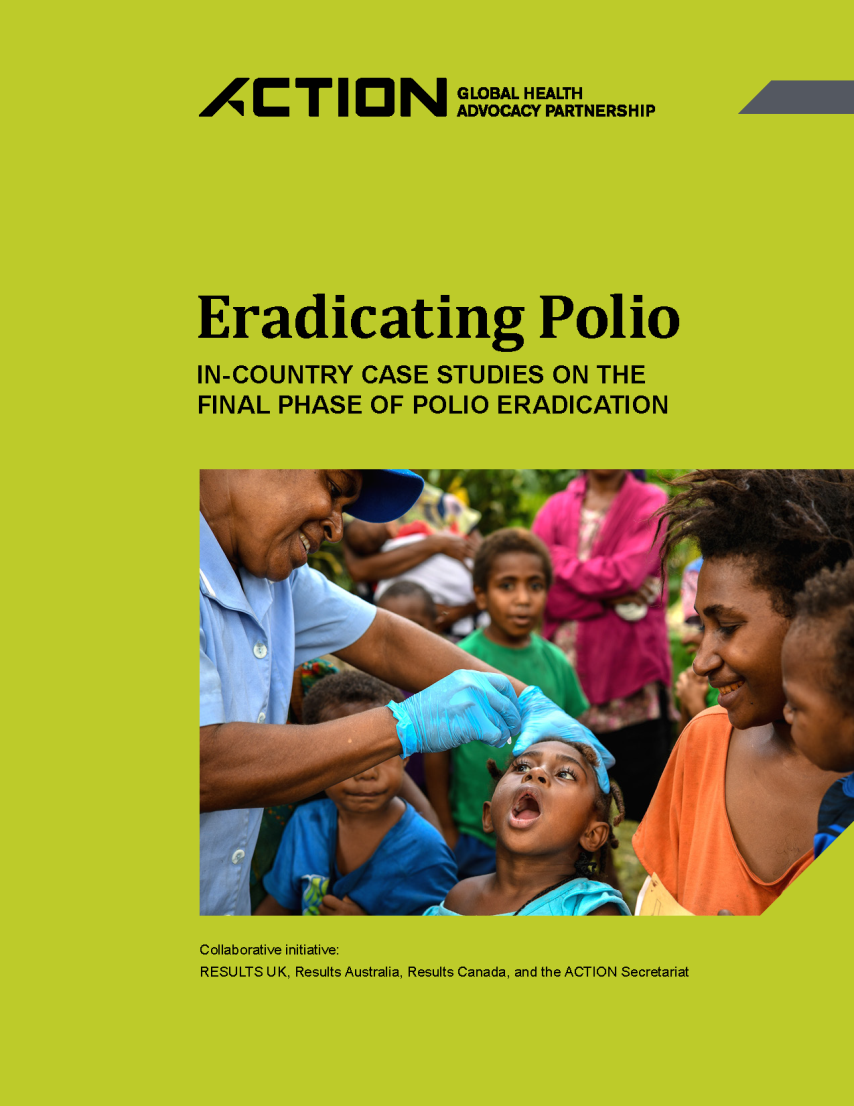This blog is authored by Yanira Garcia, Global Health Analyst, ACTION
When all 193 United Nations member states agreed on the Sustainable Development Goals (SDGs) in New York City in 2015, they embarked on an ambitious journey for a safer, more equitable world by 2030. SDG 3.8 lays out a vision for an equitable, sustainable health system: “Achieve universal health coverage, including financial risk protection, access to quality essential care services and to safe, effective, quality, and affordable essential medicines and vaccines for all.”
Today, an estimated 400 million people around the world lack access to one or more essential health service. While every year, 100 million people are pushed into poverty due to out-of-pocket health care expenses.1
Universal health coverage (UHC) means that people of all ages and from all communities should receive the quality health services they need (preventive, curative, rehabilitative, and palliative care) without suffering financial hardship.
Critics of UHC argue that the goal is too idealistic, however every country can progress over the next 15 years by looking at their resources, priorities and health systems.2 They believe it is too costly, but UHC does not mean free coverage for all possible health interventions, regardless of the cost. For instance, in 2003, Ghana introduced the National Health Insurance Scheme (NHIS) which included premium exemptions for the indigent, elderly, and children (if both parents were not enrolled), premium reductions for the poor, and restricted benefit packages but included (some) inpatient care.3 They also argue that UHC limits services unduly; while it is true that no country can afford to provide every possible health service to every individual, UHC requires a spectrum of essential services, which align with other social goals, provided at an affordable cost.4 Moreover, studies consistently show that when carefully-managed, quality care delivery leads to better health outcomes and lower costs.5
Several countries including Greece, Chile, Japan, Thailand, and Turkey have extended coverage of essential services and increased financial protection to access healthcare in recent years and their experience proves out the studies.6 After Turkey launched a comprehensive health reform effort called “Health Transformation Program” (HTP), the maternal mortality ratio fell from 61 deaths per 100,000 live births in 2000 to 16.4 deaths per 100,000 live births in 2010.7 Demonstrating that all countries can take actions to move towards UHC or to maintain the gains already attained. Through health system reforms, countries can reduce the gap between the supply and demand of quality health services,8 and ultimately deliver significant health, economic, and political benefits.
Equitable access to and use of affordable health services also empowers people, makes them more productive, and enables them to contribute to the betterment of their families, communities, and society.
Making Progress Towards UHC
Although solutions for health system strengthening are not “one size fits all,” countries falling behind on SDG 3.8 have common elements, such as:
- Lack of political leadership to adopt and implement urgently needed policy reforms
- No country and state, regional level initiatives on policy and governance that work towards strengthening primary healthcare systems and promote health security
- Inadequate investments in the primary health care workforce and insufficient availability, accessibility, and capacity of health workers to deliver quality people-centered integrated care
- Weak system for procurement and managing health information, and poor supply of medicines and health technologies
- Broad strokes approach to address unique circumstances (e.g., to answer who is covered, which services are covered, and at what level of quality)
- Few sources of revenue to support the expansion of UHC, for example, explicit budget earmarks and other government financial commitments
- Insufficient care taken to establish UHC with an appropriate timeframe (if not planned well in advance, both the financial sustainability and equitable impact of UHC can be affected and in turn difficult to change once institutionalized; governments should be cautious when making decisions on types of payment arrangements and private sector regulation)
According to the World Health Organization’s report, Together on the road to universal health coverage, investing in UHC is a smart investment that would lead to increases in health and well-being.

The UHC Forum, hosted by the Government of Japan, the World Bank, the World Health Organization, UNICEF, UHC2030, and the Japan International Cooperation Agency (JICA), will take place December 12–15, 2017 in Tokyo, Japan. The event will serve as a platform for citizens to build political momentum and secure commitments from all stakeholders for UHC, and it will set the stage for concrete, actionable steps at the community, national, and regional levels to make UHC a reality.
As we commemorate UHC Day, we urge governments to acknowledge the remaining financial and technical gaps and allocate and raise the necessary domestic resources. To prioritize health issues, incorporate lessons learned from countries that have successfully implemented UHC, and deliver successful reforms that ensure every person—women and men, children and adolescents, the disabled and elderly, rich and poor, urban and rural dwellers—has access to quality healthcare. External support must also be maintained to secure the needed health care in countries which even at their ‘maximum available resources’ cannot meet this target alone through domestic resources. Even if all countries were to reach the target of 5% of GDP, low-income countries and only 60 percent of LMICs would be spending above the absolute target of $86 per capita.9
We all must recognize the grave risks to global health security. A once isolated outbreak of infectious disease in a seemingly remote part of the world threatens all nations. Investing in equitable and sustainable health systems is the best way to reduce our vulnerability to health threats that can easily cross borders, so that countries are better able to prevent, spot, and effectively respond to public health emergencies.10 Health is a fundamental human right, and UHC is a strategic imperative to safeguard it now and for our future.
—————————————————————-
1 http://www.who.int/mediacentre/factsheets/fs395/en/
2 The World Health Organization. Together on the road to universal health coverage. (2017). Retrieved from http://www.who.int/universal_health_coverage/road-to-uhc/en/
3 Adam Wagstaff, Daniel Cotlear, Patrick Hoang-Vu Eozenou, Leander R. Buisman; Measuring progress towards universal health coverage: with an application to 24 developing countries, Oxford Review of Economic Policy, Volume 32, Issue 1, 1 January 2016, Pages 147–189, https://doi.org/10.1093/oxrep/grv019
4 Lancet; 387(10020): 811–816. doi: 10.1016/S0140-6736(15)60002-2. Retrieved from https://www.ncbi.nlm.nih.gov/pmc/articles/PMC5395011/
5 Michael R. Reich, Joseph Harris, Naoki Ikegami, Akiko Maeda, Cheryl Cashin, Edson C. Araujo, Keizo Takemi, Timothy G. Evans. (2015). Moving towards universal health coverage: lessons from 11 country studies.
6 OECD. Universal Health Coverage and Health Outcomes. (2016). Retrieved from https://www.oecd.org/els/health-systems/Universal-Health-Coverage-and-Health-Outcomes-OECD-G7-Health-Ministerial-2016.pdf
7 The World Bank. Toward universal coverage : Turkey’s green card program for the poor. (2013). Retrieved from http://documents.worldbank.org/curated/en/565451468319153981/Toward-universal-coverage-Turkeys-green-card-program-for-the-poor
8 The World Health Organization. The world health report. (2010). Health systems financing: the path to universal coverage.
9 Mcintyre, D., Meheus, F., & Røttingen, J. (2017). What level of domestic government health expenditure should we aspire to for universal health coverage? Health Economics, Policy and Law,12(2), 125-137. https://doi.org/10.1017/S1744133116000414
10 Heymann DL, Chen L, Takemi K, Fidler DP, Tappero JW, Thomas MJ, et al. (2015). Global health security: the wider lessons from the west African Ebola virus disease epidemic. Lancet; 385(9980):1884–901

